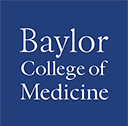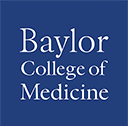Day 1 :
Keynote Forum
Dr. David I Smith
Mayo Clinic,USA
Keynote: Talk 1 : The DNA sequencing revolution as an important singularity
Time : 9:30 - 10:00

Biography:
David I Smith is the Chairman of the Technology Assessment Group for the Mayo Clinic Center for Individualized Medicine. He is an expert of advanced DNA sequencing methodologies and how to use these to study the molecular alterations that occur during cancer development. His research focuses on the different roles that human papillomavirus plays in the development of different cancers. His group also studies genome instability during cancer development and the role that the common fragile sites plays in this.
Abstract:
Keynote Forum
David I Smith
Mayo Clinic, USA
Keynote: Talk 2 :How Next Generation Sequencing is going to transform how we treat cancer patients
Time : 10:00-10:30

Biography:
David I Smith is the Chairman of the Technology Assessment Group for the Mayo Clinic Center for Individualized Medicine. He is an expert of advanced DNA sequencing methodologies and how to use these to study the molecular alterations that occur during cancer development. His research focuses on the different roles that Human papillomavirus plays in the development of different cancers. His group also studies genome instability during cancer development and the role that the common fragile sites plays in this.
Abstract:
Keynote Forum
Felice Elefant
Drexel University, USA
Keynote: Restoring histone acetylation homeostasis in the Neurodegenerative brain relieves Epigenetic transcriptional repression and reinstates cognition
Time : 10:50-11:20
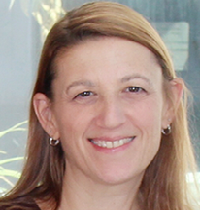
Biography:
Felice Elefant’s research program is focused on understanding the epigenetic neural gene control mechanisms that govern regulation of higher order brain function via chromatin packaging control in neurons. Her research group focuses on understanding the role(s) of specific HATs in cognition and neurogenerative disorders such as Alzheimer’s disease (AD). Her research group generated a robust Drosophila model system that enables them to modulate Tip60 HAT levels in neural circuits of choice under AD neurodegenerative conditions, in vivo. Its use led to their exciting discovery that Tip60 is critical for cognitive processes and protects multiple cognitive neural circuits impaired in the brain during early AD progression. Her group is currently deciphering the mechanisms underlying Tip60 HAT action in neuroprotective gene control using fly and mouse AD models and determining how these Tip60 epigenetic processes go awry in the brains of human AD patients.
Abstract:
Keynote Forum
M. Eileen Dolan
The University of Chicago, USA
Keynote: Role of Pharmacogenomics in identifying cancer survivors at risk for adverse, persistent toxicities
Time : 11:20-11:50

Biography:
M Eileen Dolan’s lab is focused on improving the quality of life of cancer patients through the identification of genetic variants associated with risk for severe and persistent toxicities following chemotherapy (i.e. peripheral neuropathy, ototoxicity, tinnitus), particularly in children and young adults whose adverse sequelae could persist throughout their lifetimes. To this end, they perform clinical genome-wide association studies (GWAS) to identify genetic variants associated with toxicity in patients following chemotherapy. In addition, they develop preclinical models to elucidate the biochemical and cellular impact of genes identified in clinical GWAS studies of chemotherapeutic toxicity. More recently, her laboratory has developed an induced pluripotent stem cell-derived neural cell model to evaluate genes contributing to chemotherapeutic-induced neuropathy, a common adverse event of multiple chemotherapeutic agents. Using patient-derived induced pluripotent stem cells, they are developing models that will have broad applicability for gaining insight on druggable targets to treat or prevent this devastating side effect of chemotherapy.
Abstract:
Statement of the Problem: There are now over 28 million cancer survivors worldwide, and as a result, there is a heightened awareness of the long-term toxicities resulting from treatment and their impact on quality of life. Understanding the role of germline genetic factors in the development of cancer treatment-related toxicities is critical for the identification of patients at risk as well as for the development of drugs to treat or prevent these toxicities. The purpose of this presentation is to review current understanding of genetic susceptibility to adverse outcomes among cancer survivors following chemotherapy with a particular focus on genome-wide association studies (GWAS). Few of the findings from earlier narrowly focused candidate gene studies have been replicated in independent populations. A major strength of genome-wide approaches is that they do not require assumptions about the genes or pathways involved in the pharmacologic trait. The challenges include the need for large cohorts of patients with homogeneous treatment exposures and systematic evaluation of well-defined outcomes as well as replication in independent study populations. Persistent calls to incorporate ancestrally diverse populations into genomic efforts resulted in a recent rise in the number of studies utilizing cohorts of East Asian descent; however, few pharmacogenomic studies to date include cohorts of African, Native American and admixed populations. These disparities could contribute to the widening gaps in health outcomes. In addition to discussing an overview of this approach, the presentation will pay particular attention to recent studies identifying genetic variants associated with chemotherapy-induced peripheral neuropathy and ototoxicity (hearing loss and tinnitus). Conclusion & Significance: Genetic associations hold tremendous promise for more precisely identifying patients at highest risk for developing adverse treatment effects and potential identification of targets for prevention or treatment of the long-term toxicities associated with chemotherapy.
Keynote Forum
Olorunseun O Ogunwobi
Hunter College, City University of New York, USA
Keynote: MicroRNA-1207-3p in metastatic castrate-resistant prostate cancer
Time : 11:50-12:20

Biography:
Olorunseun O Ogunwobi is Associate Professor in the Department of Biological Sciences at Hunter College. He is also a member of faculty for the PhD program in Molecular, Cellular, and Developmental Biology as well as for the PhD program in Biochemistry at The City University of New York, and he is an adjunct faculty member in the Joan and Sanford I. Weill Department of Medicine, Weill Cornell Medicine, Cornell University. He focused on studying the molecular mechanisms of metastasis in solid organ cancers. Ongoing studies in his lab include examination of the biological mechanisms underlying racial disparities in solid organ cancers such as prostate cancer. Research in his lab has been funded by the National Institutes of Health, National Science Foundation, and New York State Department of Health. Dr Ogunwobi is an Academic Editor for PLoS One, and Adhoc reviewer for numerous scientific journals. He has published 38 peer-reviewed articles, and has one patent issued by the United States Patent and Trademark Office.
Abstract:
Prostate cancer (PCa) is the most commonly diagnosed cancer in males in the western world. It is frequently lethal when cancer becomes resistant to androgen deprivation therapy. At this stage, it is clinically described as castration-resistant prostate cancer (CRPC). The molecular mechanisms underpinning progression to this deadly stage are unclear; however, dysregulation of the androgen receptor (AR) has been strongly implicated. Aside from the AR gene locus, one of the bestestablished susceptibility loci for PCa is the 8q24 human chromosomal region. The 8q24 region is a gene “desert” that contains the non-protein coding gene locus PVT1, which encodes six annotated microRNAs (miRNAs). The role of these six miRNAs in PCa is unclear. My talk will focus on the role in PCa of one of the six PVT1- encoded miRNAs, miR-1207-3p.
- Human Genetics | Cancer Genetics | Genetic Disorders | Molecular and Cellular Genetics | Medical Genetics | Population and Evolutionary Genetics | Cytogenetics | Epigenetics | Immunogenetics | Pharmacogenomics | Microbial Genomics | Cancer Genomics | Functional Genomics | Nutrigenomics
Session Introduction
Khushnooda Ramzan
King Faisal Specialist Hospital and Research Centre, Saudi Arabia
Title: Challenges and rewards of Usher syndrome genetics research in Saudi Arabia
Time : 13:50-14:15
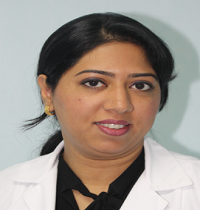
Biography:
Abstract:
Change L Tan
University of Missouri, USA
Title: Holistic studies of whole genomes
Time : 11:50-12:15
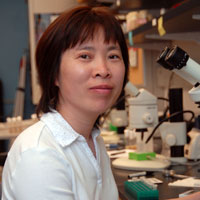
Biography:
Change Tan received a BS in Chemistry at Hunan Normal University, an MS in organic chemistry at Nan Kai University, a PhD in biochemistry at University of Pennsylvania and a postdoc training in genetics at Harvard Medical School. She joined University of Missouri in 2005 and is currently an associate professor in the Division of Biological Sciences at University of Missouri. Her research interests include genetics, comparative genomics, developmental biology, molecular biology, origin of life, and origin of biodiversity. She teaches molecular biology and signal transduction to graduate and undergraduate students.
Abstract:
Sadia Ajaz
University of Karachi, Pakistan
Title: Germ-line mutanome profiling of the Breast cancers in Pakistani population
Time : 12:15-12:40
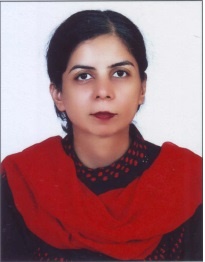
Biography:
Abstract:
Reina Villareal
Bayer college of Medicine, USA
Title: Musculoskeletal response to hormonal therapies is influenced by CYP19A1
Time : 13:40-14:05

Biography:
Abstract:
Reina Villareal
Bayer college of Medicine, USA
Title: Musculoskeletal response to hormonal therapies is influenced by CYP19A1

Biography:
Abstract:
Polymorphisms of the CYP191A1 which encodes aromatase, the enzyme that converts testosterone to estradiol, are reported to influence the skeletal phenotypes in both men and postmenopausal women. We reported that the rs700518 polymorphism (G to A) of the CYP19A1 was associated with differences in bone loss and body composition changes among women with estrogen receptor positive breast cancer given aromatase inhibitors (AIs). Women with the AA genotype had significant bone loss in the spine and total hip compared to women with the G allele (GA+GG genotypes) after 1-year AI treatment. Meanwhile, women with the GG genotype had significant loss in fat-free mass (FFM) and gain in trunk fat mass (TFM) compared to women with the A allele (AA+GA) who had no loss in FFM but had significant loss in TFM. These findings suggest that women with the GA genotype have the best side effect profile to AIs. Using the same concept in hypogonadal men treated with testosterone for 18 months shows that although there were no inter-genotype differences in bone mineral density changes (hip and spine) for both rs700518 and rs1062033, the GG genotype (G to C) for rs1062033 experienced significant improvement in bone geometry parameters (total bone and cortical area) compared to GC+CC genotypes. Moreover, total fat and TFM decreased more in AA than GA+GG and in CC than GC+GG in rs700518 and rs1062033, respectively. Lean mass increased more in AA than GA+GG and in CC than GC+GG in rs700518 and rs1062033, respectively. We found no intergenotype differences in adverse effects on the hematocrit and the prostate. A difference in CYP19A1 expression in the fat was observed in rs1062033 variants. Rs700518 and rs1062033 are in partial linkage in our sample. Thus, we conclude that CYP19A1 polymorphisms influences response to hormonal therapies and should be considered in treatment decision-making.
Diptee A. Kulkarni
Glaxo Smith Kline Research and Development, USA
Title: Identification of novel cancer target genes by combining data from the cancer genome wide association studies (GWAS), regulatory DNA elements and The Cancer Genome Atlas (TCGA)
Time : 14:05-14:30

Biography:
Abstract:
Anna R Moore
Temple University Philadelphia, USA
Title: Molecular regulation of experience dependent plasticity
Time : 14:30-14:55

Biography:
Abstract:
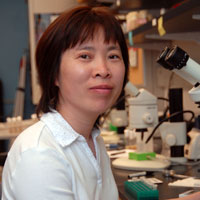
Biography:
Change Tan received a BS in Chemistry at Hunan Normal University, an MS in organic chemistry at Nan Kai University, a PhD in biochemistry at University of Pennsylvania and a postdoc training in genetics at Harvard Medical School. She joined University of Missouri in 2005 and is currently an associate professor in the Division of Biological Sciences at University of Missouri. Her research interests include genetics, comparative genomics, developmental biology, molecular biology, origin of life, and origin of biodiversity. She teaches molecular biology and signal transduction to graduate and undergraduate students.
Abstract:
- Poster presentations
Session Introduction
Adriana Pérez Portilla
National Centre for Biotechnology, Spain. Instituto de Investigación Sanitaria Puerta de Hierro Segovia de Arana, Spain
Title: Characterization of Genetic variation in the Fc gamma receptor locus in the Ecuadorian population
Biography:
Abstract:
Sharareh Kamfar
Hamadan University, Iran. National Institute for Genetic Engineering and Biotechnology, Iran and Baqiyatallah El - Azam Subspeciality Hospital, Iran
Title: Mitochondrial DNA copy number variation in Iranian patients with non-alcoholic fatty liver disease
Biography:
Abstract:
Kambiz Hasrak
Baqiyatallah El - Azam Hospital, Iran
Title: Analysis of mitochondrial DNA D-loop region mutations in Iranian patients with non-alcoholic fatty liver disease
Biography:
Abstract:
Guangying Wang
Chinese Academy of Sciences, China Zhejiang Gongshang University, China
Title: Toxicogenomic investigation of Tetrahymena thermophila exposed to organic pollutants and arsenic
Biography:
Abstract:
Gulmira Yermakhanova
Medical Center Hospital of President’s Affairs Administration, Republic of Kazakhstan
Title: Study of association of some gene polymorphisms with metabolic syndrome and its components in Kazakh population
Biography:
Abstract:
Massimiliano Chetta
Laboratory of Human genetics, ospedale Antonio Cardarelli, Italy and Department of Medicine, Surgery and Dentistry, University of Salerno, Italy
Title: Spatial and temporal distribution of small no coding RNAs (miRNAs and piRNAs) into the cell
Biography:
Abstract:
- Human Genetics | Cancer Genetics | Genetic Disorders | Molecular and Cellular Genetics | Medical Genetics | Population and Evolutionary Genetics | Cytogenetics | Epigenetics | Immunogenetics | Pharmacogenomics | Microbial Genomics | Cancer Genomics | Functional Genomics | Nutrigenomics
Location: Independence Ballroom A

Chair
David I Smith
Mayo Clinic,YSA

Co-Chair
M Eileen Dolan
University of Chicago,USA
Session Introduction
Gargi Pal
Hunter College of The City University of New York, USA
Title: Clinical absolute quantification assay for non-invasive detection of Plasmacytoma variant translocation 1-derived transcripts
Time : 14:15-14:40

Biography:
Abstract:
Laura Scheinfeldt
Coriell Institute for Medical Research, USA
Title: Reducing ascertainment bias in Pharmacogenomic research
Time : 14:40-15:05
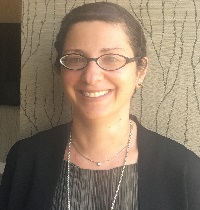
Biography:
Abstract:
Byung Yoon Choi
Seoul National University Bundang Hospital, South Korea
Title: A customized auditory rehabilitation based on the genetic etiology: A new auditory neuropathy spectrum disorder gene
Time : 15:05-15:30

Biography:
Abstract:
Meryem Alagoz
Biruni University, Turkey
Title: Deficiency in ORC1 affects heterochromatin organization, sister chromatid cohesion and the response to DNA damage in Meier-Gorlin syndrome
Time : 15:30-15:55

Biography:
Abstract:
Jean Philippe Stephan
Center for excellence Pharmacological Screening, France
Title: Pharmacogenomics boosted high content screening approaches for drug discovery
Time : 16:15-16:40

Biography:
Abstract:
Xinzhong Li
Plymouth University, UK
Title: Cross-talk between Brain cancer and Alzheimer’s disease
Time : 16:40-17:05

Biography:
Abstract:
Binata Marik
AIIMS, New Delhi, India
Title: Mutational screening in patients with familial hypophosphatemic rickets

Biography:
Abstract:
Session Introduction
Binata Marik
AIIMS, New Delhi, India
Title: Mutational screening in patients with familial hypophosphatemic rickets
Time : 17:05-17:30

Biography:
Abstract:
Introduction: Hypophosphatemic rickets, characterized by hypophosphatemia and defective bone mineralization, is predominantly inherited as an X-linked dominant condition caused by inactivating PHEX mutations. Autosomal dominant and recessive forms due to mutations in FGF23, DMP1, ENPPI, and SLC34A3 respectively are also documented. Aim: To identify mutations in cases with familial hypophosphatemic rickets (FHR) and their family members. Patients and Methods: The three FHR patients (probands) were born out of non-consanguineous marriages. In the family I, the patient and her mother were affected, in family II, the patient, her brother, and mother were affected while family III had two sisters, their father and paternal uncle affected. Clinical and family history was documented and 5ml blood drawn for DNA extraction. PHEX exons were screened by direct sequencing and result analyzed using in silico tools. Whole Exome Sequencing (WES) was done to find involvement of genes responsible for intra-familial variability seen in the affected members, and validation of mutations was done by Sanger sequencing. Results: The patients had short stature, limb deformities, and low serum phosphate. PHEX screening revealed three mutations in three patients and their affected family members, of which one was novel missense (c.2048T>A) and two reported nonsense and missense (c.871C>T; c.1601C>T) mutations respectively. Two families presented with intra-familial variability in disease phenotype. The paternal uncle of family III had dental anomalies and mother of the family I had short stature. WES was done for the family I, and family III probands, father and paternal uncle. Results revealed a novel PHEX mutation G>C in exon 21 in the family I proband, which was absent in her mother but did not reveal any additional mutations, other than c.1601C>T in family III. Conclusion: This study reports two novel PHEX mutations and also suggests that PHEX may be mainly responsible for FHR in India.
Alec R Chapman
Harvard University, USA
Title: Correlated transcription modules uncovered by high-precision single-cell transcriptomics
Time : 17:30-17:55
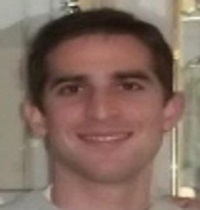
Biography:
Abstract:
Jagriti Sethi
University of Plymouth, UK
Title: Graphene biosensors for label-free detection of blood-based biomarkers for Alzheimer’s disease




